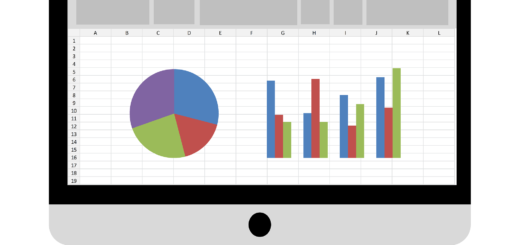Buying a Car With Bad Credit

Are you tired of hearing the word ‘No’ when it comes to a car loan? Remember, regardless of your past credit history, you still need a car, want a car and most of all, you deserve a car. You should also be treated with respect and given choices. I’m going to teach you how to have a choice when buying a car with bad credit.
Your Credit Report and How it Effects Your Loan
I know what you’re thinking here: this lady has lost her mind! I know a few insider tips about big name lenders that may help you here. First of all, all lenders now purchase deals based on what is called a beacon score, which is the same as your credit score. There are three credit bureaus that make up the package. Each lender will choose whichever credit bureau(s) they prefer when looking at your credit or a combination of bureaus.
I highly advise everyone to have all three credit bureaus pulled when checking your credit and to pay for the credit score. If you only look at one bureau, you’re only seeing part of the whole picture. Bad credit financing is an art and there is a skill to it.
If your credit score happens to be around 600 or higher, most lenders will look at your application with the intention of loaning you money. There are a few exceptions:
- If you have had a repossession, it needs to be a year or older. If you have had 2 repossessions, it is unlikely you will be approved from a traditional lender..
- You can be freshly discharged from a bankruptcy and have a high enough credit score and qualify for a loan. You just can’t have any negative credit after the bankruptcy was discharged.
With the exception of these two things, your credit score will play a large part in your approval. Staying within your financial means is another, so be realistic. If you make $2500 per month and have $1200 going out, don’t walk in all high-and-mighty and tell the Finance Manager that you will only have an Expedition or nothing. You’ll end up with nothing.
In order to obtain a loan, you are going to have to know what your credit looks like and what your credit score actually is. Otherwise, you are working in the dark. Knowing your credit score let you know if you qualify for a traditional lender. Also, the higher the score, the lower the interest rate.
Third Party Dealers
Let me explain how websites like cars.com and the like operate. They collect applications for car loans online. They then have a network of dealerships that PAY them for the leads. These are generally dealerships that have departments that specialize in getting you financed, regardless of your credit. These departments pay for these leads, so most take them very seriously, as they are their bread-and-butter, so to speak.
If you have a lower than usual credit score, a current repossession. or just plain, all-around bad credit, this might be the way to go. If your credit is really that bad, remember that you are going to need some cash or a paid-for trade in that’s actually worth something.
Consider Delaying the Purchase
With your credit score in hand and a copies of your credit reports, look at your credit. Do you have anything strange on there that is not yours? If so, it’s time to fix it. You should review your credit bureau at least once per year. You can place a freeze on your credit files if you are concerned about identity theft, You can do this online at any or all of the credit bureaus or you can call. Before applying for new credit, you will need to have the freeze removed. A freeze basically adds a note to your files that state “Do not extend any credit on my behalf without contacting me first.” and then you will provide your contact information.
If you find that your scores need work, consider taking some time to increase them before seeking an auto loan. The better your credit is, the better loan you will be able to secure.
Before Going to the Dealer
Know what you want to buy BEFORE you even go out shopping! Let me make this very clear. Car dealer’s jobs are to sell you a car on your very first visit. A salesman/woman and their sales manager believe that if you walk into their dealership and do not leave with a car, you will never come back again. They are going to hammer on you until they either A) Make you mad and you get up and leave or B) Sell you a car. It’s the nature of the beast.
What do you want to buy? Where can you get unbiased information on the auto? Search the internet for sites like Kelley Blue Book or NADA and you can get costs, warranty information, recalls, and tons of other information beforehand. Narrow down your choices to three models. Keep it simple. Those will be the ones that you will shop for.
Be Realistic About What You Can Afford
You may think you can afford the car, but the bank may think otherwise! I have seen this so many times in my career. Automobile economics 101: Start by knowing your gross income (what you make per year BEFORE taxes). This income needs to be provable. The information can come from tax returns, check stubs with taxes taken out, or a W-2. If you are self-employed, you will need two years of tax returns with Schedule C’s. This is the income that you actually paid taxes on. Being self-employed can be tough. You may need to combine a spouse’s income if you are self-employed.
Now with your gross income figured out, find out what all of your debts are that are going out each month. Include everything. A good place to start is look at what debts are on your credit reports. Do not forget to add in other items like utilities, day care charges, savings, entertainment expenses, etc. Once you know how much you are bringing in compared to what you have going out, you will know better how much you can afford for a car payment.
Almost all lenders will not allow your new car note to exceed 20% of your current income. For our example, let’s assume that your gross income is $5,300 per month an have monthly obligations of $4.2100. Take $5300.00 and subtract your monthly obligations of $4210.00. That would leave you with disposable income of $1090.00. What the lender is looking at here is known as the debt-to-income. They want to know if you have more going out than you can handle. If your debt-to-income is running too close to 50%, you’re going to have a hard time getting a loan for anything. Your debt-to-income ratio is a HUGE deal. Most lenders will slice the amount of money you have left for a car each month by half. In this example, half of $1,090 is $530. You should aim for a payment roughly in that price range.
Consider the Terms
How will you know how much a payment will be ahead of time? One answer depends on the term of the loan. You can finance for 36, 48, 60 or 72 months generally. That equates to 3 years, 4 years, 5 years and 6 years. I will tell you this: the worst thing you can do is extend the note out the longest amount of time in order to get the payment where you can afford it. That creates a problem that now affects over 75% of car owners called being “Upside Down.” It means that you owe more on your car than it’s worth.
You can again do a Google search for a ‘car loan calculator’. You will punch in the loan amount you want to borrow, the term (48,60, etc.) and the interest rate. Here’s a rule of thumb for you-it’s not an exact science without knowing your credit, but it is a guide you can follow to get you close. Base the potential rate on your credit score since that’s what most of the lenders are going to look at.
Credit score of 550 or lower:
- Used: Interest rate of approximately 21%. State maximums vary so yours could be lower.
- New: Interest rate of approximately 33%
Credit score 550 to 599:
- Used: Interest rate of approximately 18%
- New: Interest rate of approximately 27%
Credit score of 600-649:
- Used: Interest rate of approximately 16%
- New: Interest rate of approximately 20%
Credit score of 650-699
- Used: Interest rate of approximately 12%
- New: Interest rate of approximately 12%
Get Pre-Approval
Get Pre-Approval BEFORE you start shopping. This is the easy part, in a way. Remember I told you at the beginning of this article to take charge of your car deal instead of letting the dealer lead you by the hand? It all boils down to financing. If you can walk in with a check in your hand, you are in control. Contact your bank ahead of time as well as a few other options (consider credit unions, competing banks. even some credit card companies offer auto financing).
Time To Buy
There is nothing more valuable than time and nothing more rewarding than piece of mind. Please don’t go running from dealership to dealership. Pick out the 3 models of auto that you can afford. If you are looking for a program car (rental), call dealerships and inquire as to whether or not they have any. Shopping for a new car? Ask other people that are driving that model where they bought theirs and would they purchase there again. If you start hearing a lot of “I’ll never buy from them again”, move on. Something is wrong. Your new car is only as good as the service you will get AFTER the sale.
Negotiating-Most people hate this. I have only met 2 people in 14 years that enjoyed it. They were both retired and had nothing better to do. One did it for the fun of it and never even bought if you agreed to his price. Don’t waste other people’s time. If you don’t like the car, don’t negotiate on it. When you do find a car that you would own, tell the salesman you’d buy it right then if the price was right. The keyword here is: ‘If the price is right’. How do you know what a good price is? Well…glad you asked. If it’s a new car, Kelley Blue Book will have dealer cost. Kelley Blue Book will also have used car prices as will www.nadaguides.com.
Things to Consider While Making the Deal
Let’s consider the following example for purchasing a used car. Before you ever drove the car, you went by the dealership when it was closed. There were no salespeople and you got the VIN of the car you are considering. Later, you went back and test drove the car and you want to buy it. The list price is in your pre-approved loan range to boot. You did an online search and know the prices for the wholesale, trade-in and retail values for the car.
Retail is what the dealer should ask for the car. This will help you to know whether or not the salesman is trying to add money to the car. Trade-in is a figure to gauge approximately what the dealership traded for the car for. It will give you an idea of what the dealer paid for the car before reconditioning fees and any ticket from service. Now, not every make of car will bring trade-in value, but base the amount you want to buy the car for based on this trade-in value. Also, ask the salesperson how long they’ve had the car. If they’ve had it a while, your negotiating should be easier. The reason behind that is that the dealer is paying interest on the car every month it does not sell. The book value is also dropping every month so it needs to go.
Assuming you already got a pre-approved loan, throughout the car deal, make sure they know you have your own financing. When you make a deal, strongly consider asking the salesperson for A CarFax report before you sign any paperwork. A CarFax report will show if the vehicle has been in a serious wreck, was bought back from the original customer, or has a salvage title. This will put your mind at ease. If you don’t like the report, don’t buy the car.
Throughout your shopping, I can’t stress this enough, do NOT fill out credit applications at each dealership. Every time you sign a credit application, the dealer pulls your credit report and your credit score goes DOWN. That’s why I advise on getting per-approval ahead of time. There are numerous advantages to getting pre-approval. The main advantage is that you are in control, not the dealership. That’s worth a fortune in itself. Their job is to take control of you from the start of every meeting.
For some reason, should you not be able to get pre-approval because your credit is extremely bad and you have to go through an o third party lender, don’t despair. Continue to follow my previous steps and advice and negotiate. Don’t forget the CarFax report!
Additional Add Ons
If you do decide on a car and go into the finance office to sign the papers, know that you do not have to purchase any services to get the loan. If anyone in tells you that you have to purchase a warranty and credit life to get the loan, know you do not have to. Why would a finance manager do that? Because they work on commission! Surprised? Don’t be. That’s the way dealers set up finance offices from the start when they realized how much money could be made. The finance manager makes money off of the rate they quote you, the warranty they sell you, the gap insurance, and the credit life and disability you buy. That’s how they make a living. I am not saying these products are bad, just o not fall for the lie that you MUST purchase them to get a loan.
I believe in extended warranties. I’m just telling you to shop around first. If you find a cheap warranty, check out the company and make sure they will give the dealer a credit card over the phone immediately when in need of repairs in any state. All in all, I will say this: a manufacturers warranty is always better than an after-market warranty. Always. Just negotiate on it if you want it. The only reason why you would not want gap insurance would be if you literally paid cash for the car. Otherwise, gap is cheap (should retail around $495) and will pay the portion that insurance won’t pay if it’s totaled. Just remember what I said about the book dropping on a car every month. It will never be worth what you owe unless you put down a lot of money at the time of purchase.
Credit life and Disability insurance are a personal matter. If you have a life insurance policy, it can be used to pay off the car in the event of your death. If you are single, why do you need Credit Life? The only benefit would be if you are married with a family, it cuts down the payout time. In this situation, your spouse would not lose the car. Disability Insurance pays out for a specified amount of time. It will not pay out for the entirety of the loan. It also has a specified start date from the time you are disabled and doesn’t just kick in immediately.
This is a lengthy article, but the gist of it is this: do your homework at home first. Next. get approved online. Then, decide what car you want to buy. Lastly, go get your car and negotiate on everything. It will be the easiest car-buying experience you have ever had. Regardless of your credit situation, if you follow my steps, you’ll have a car in no time and you’ll be an educated and informed customer during the process. Good luck!




